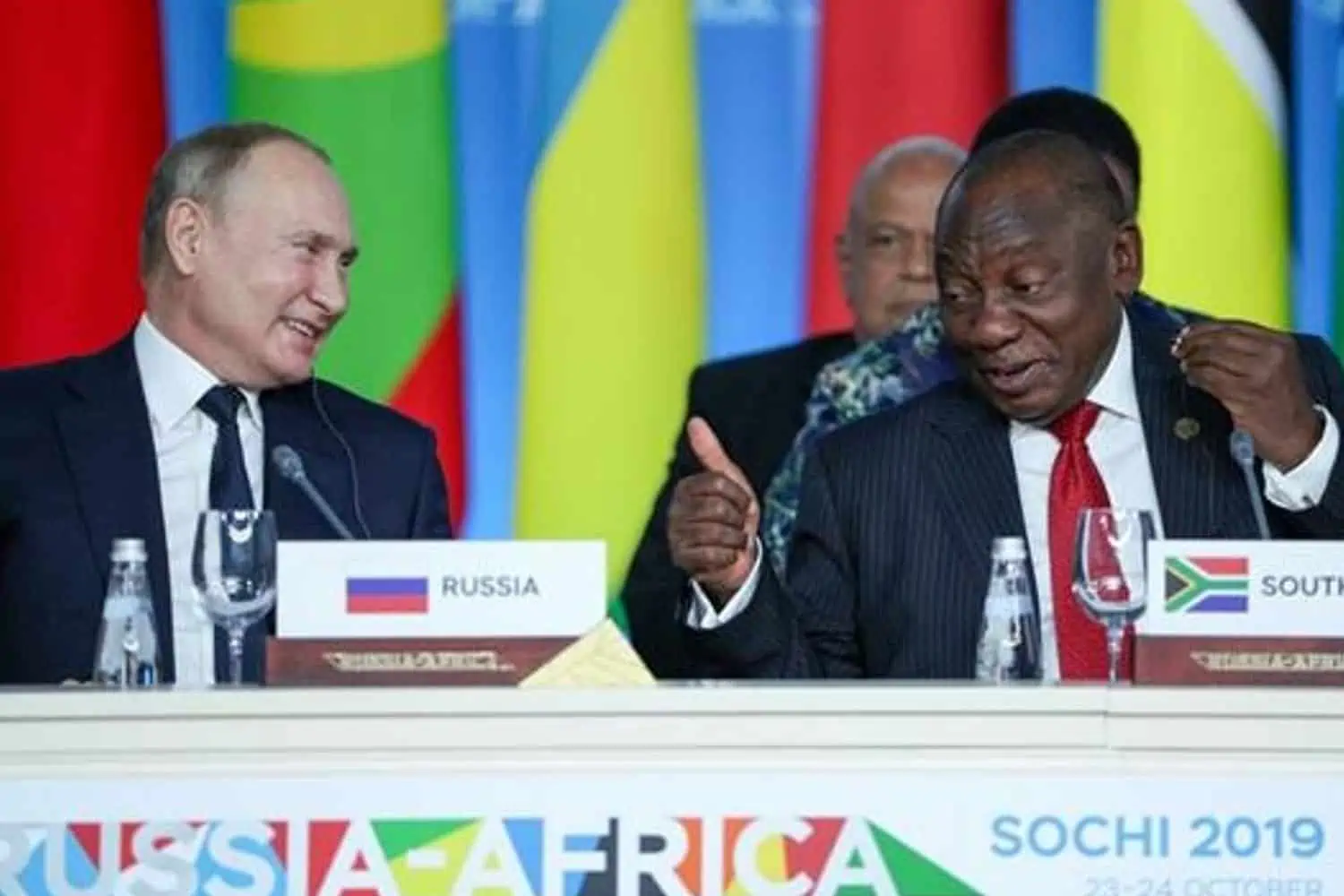South African officials seem a little in two minds about the countries stance on Russia’s attack on Ukraine, but the situation will none the less impact South Africa.
South Africa’s Stance
Last week the Ukrainian Ambassador to South Africa, Liubov Abravitova, asked South Africa to impose sanctions against Russia. Plus, Minister Naledi Pandor issued a statement calling on Russia to withdraw from Ukraine. Making it clear that South Africa takes a strong stance against Russia’s invasion of Ukraine.
However, it appears that the South African president was unhappy about the statement released by Minister Pandor. Instead President Ramaphosa has pointed out that members of the western realm are just as much to blame for the current situation as anyone else. In particular, he mentions President Biden.
“Some of us were very disappointed when the meeting between President Biden and President Putin did not happen… Because if that meeting had gone ahead without any conditions I’m sure we would have avoided the calamitous situation that is unfolding now.”
President Cyril Ramaphosa
Along with Brazil, India and China, South Africa and Russia are both members of the BRICS bloc. A group which regards itself as something of a counter to Western dominance. So far the other BRICS members have refrained from openly opposing Russia’s invasion of Ukraine.
Investments and Exports
Although the Bureau for Economic Research (BER) says Russia’s attack is unlikely to impact South Africa’s economic growth. We do have some trade ties with Russia which the war will negatively affect. Plus, according to the Russian Embassy, in total South Africa has roughly R77 billion worth of investment in Russia. However much of these economic ties are via a few large companies, and it is them that will be hit the hardest by the current situation.
Some examples are:
- Stellenbosch-based Zest Fruit, which exports large volumes of apples, pears, and other fruits to Russia.
- AB Inbev, the giant brewer that includes SABMiller, has its 50% joint-venture in Russia.
- Naspers, a large part of Mail.ru which is a major internet player in Russia.
- Bell Equipment, heavy-equipment manufacturers.
- Barloworld, another heavy equipment company, had 88% of firm orders from Russia.
Having said that, BER has also pointed out that Russia made up less than 0.4% of total merchandise exports in 2021. And our imports from Russia in the same year were 0.7%. So the effects should not be that great. Furthermore, the group adds that “South Africa’s trade linkages with Ukraine are very minor.”
Inflation
What South Africa should be a bit more concerned about, are potential increases in European gas prices. This will most likely become a problem should the conflict be dragged out and there be a shut down of Nord Steam Two, a 1,200 kilometer pipeline which runs under the Baltic Sea transporting gas from the Russian coast to Germany. Already South Africa will be facing a major fuel price increase in March. With the domestic petrol price going up by a substantial R1.46 per litre on Wednesday, March 2nd, and diesel going up by R1.44 per litre.
According to the BER, there are also some commodities which South Africa exports that could face price increases due to “the ongoing geopolitical tension”. For example, gold and platinum group metals, such as palladium and rhodium. Russia is the world’s largest palladium producer, with South Africa second.
BER adds “In addition to higher global grain prices, the Brent crude oil price breached $100/barrel for the first time since 2014 towards the end of the week. Brent crude averaged $96/bbl in February, almost 10% higher than in January.”
